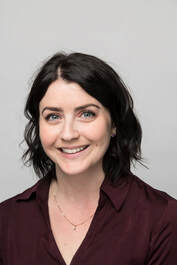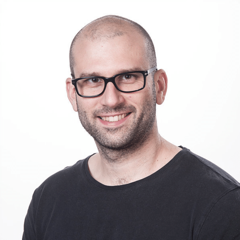|
Chantelle J. Capicciotti Department of Chemistry, Department of Biomedical and Molecular Sciences, Department of Surgery Queen’s University The thick “sugar coating” that covers all of our cells plays important roles in biology and disease. For instance, the complex carbohydrate structures found in this coating, called glycans, change to abnormal states in diseases like cancer. However, understanding how glycans affect biological processes and how we can target these molecules for therapies has been difficult. As a result, novel chemical biology tools are needed to meet the demand for new information and advance our understanding of the function of these important biomolecules. In this talk, I will describe the interdisciplinary approaches the Capicciotti Group is employing to tackle the challenge of studying glycan function in cells. Using chemical and biochemical strategies, we are examining the roles of precise complex glycan structures in immunological and inflammatory responses, and how specific glycan-protein interactions influence cancer immunoevasion. Approaches for imaging cancer-associated glycans and identifying novel glycan biomarkers as therapeutics targets to facilitate the development of glycan-based strategies for combatting disease will also be discussed.
Akos Nyerges Postdoctoral Researcher (Church Lab) Harvard Medical School Akos is interested in advancing genome editing to accelerate evolutionary processes and thus support synthetic genomics and drug development. To this aim, he has so far developed tools to perform precise genome engineering in human pathogenic bacteria and hosts for microbial fermentation. His PhD project focused on the accelerated prediction of antibiotic resistance and the exploitation of resistance mechanisms for more-effective therapeutic solutions. In the course of his postdoctoral research, he is now applying accelerated laboratory evolution to understand the design-principles of functional genomes.
Akos’ talk will summarize how bacterial synthetic biology opened new opportunities in evolutionary biology, synthetic genomics, and drug development. He will describe how they expanded the toolset of genome engineering and directed evolution to some of the most concerning pathogenic bacteria, and how they later used these advances to forecast resistance processes for antibiotics. Akos will introduce these developments through his latest project that led to the prediction of potential resistance processes against an antibiotic that is right now in clinical trials and allowed the rapid analysis of resistance mechanisms for novel drugs (i.e., https://doi.org/10.1073/pnas.1801646115 and https://doi.org/10.1101/495630). Dr. Scott Farrow Director of Biological Discoveries, Noblegen, Inc. The use of natural products by humans’ pre-dates written history, and while synthetic organic chemistry has produced new commercially relevant compounds, the organisms found in nature are the master chemists. These organisms have evolved an inexhaustible array of natural product scaffolds that are used directly in medicine (i.e. morphine from opium poppy), exploited for drug development (i.e. salicylic acid for acetylsalicylic acid or Aspirin), and used across industries including but not limited to food (i.e. health products such as green foods), cosmetic (i.e. scents in perfumes) and fuel (biofuel, specialty fuels). While the utilization of natural products has helped address the needs of a growing human population, challenges remain that threaten our well-being. In this context, nature remains a rich source of solutions to these challenges. For example, the utility of natural products as the source for food and medicine is still significant. In this seminar I will discuss my work on the elucidation of several key medicinal plant biochemical pathways (morphine, vinblastine and ibogaine) and outline traditional and modern approaches for accessing known and novel high-value natural products. I will also discuss my new role as director of biological discovery at Noblegen and some of the work we are conducting to access sustainable foods and medicines.
|
Archives
February 2021
|



